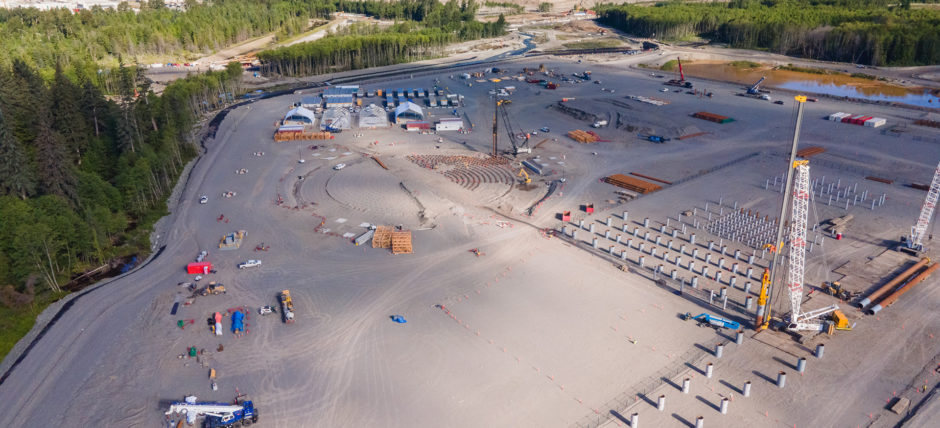
Staffing levels are increasing at LNG Canada following a COVID-19 outbreak in November and December.
A statement from LNG Canada, and contractor joint venture JGC Fluor, said there was a “careful and gradual return to construction” at the Kitimat project site. The project aims to produce its first cargo by 2025.
The British Columbia government issued a set of conditions for major industrial projects to resume on December 29. Under this, LNG Canada was allowed to return 400 workers by January 6, bringing the total to 850. It may then add another 250 workers by January 20.
In March, LNG Canada and JGC Fluor said they had reduced on-site workers from 1,800 to 590. By August, worker levels had returned to normal levels, with the aim of reaching 2,500 by the end of 2020.
Northern Health Authority confirmed an outbreak in mid-November, triggering a return to remote working.
LNG Canada said its plan was to implement the directives set out by the authorities. The authorities have ordered that a faster return would need a specific plan about how this could be done safely.
The LNG project, and others, must consider how to increase worker numbers in a way that does not “increase the risk of transmission of COVID-19, both onsite and in the surrounding communities”.
Screening
The operator highlighted screening as a means of tackling the pandemic. Before any workers return to the site they will be screened using a rapid antigen test. Refusal to comply with screening will see workers refused entry.
The first phase of this covers charter flights to Kitimat from Calgary and Edmonton. The second phase will expand to cover the rest of the workers, with screening hubs in BC flight hubs and Kitimat. LNG Canada plans to start up this second phase by mid-January.
The operator has also highlighted its on-site medical capacity, which reduces the need to seek off-site support. On-site medical care includes three medical clinics, paramedics and 24/7 access to a virtual physician.
Responding to COVID-19, the operator has established isolation wings for those with symptoms or infection, on-site swabs and increased supplies of medical oxygen.
Finally, LNG Canada has forbidden its non-local workers from leaving the project site or any other work areas, or visiting public establishments. The only exception to this rule is in case of a medical emergency.
The company reported further cases on December 17, among transportation workers for the project. This was unrelated to the November outbreak.
The BC regulations set out a number of steps infrastructure companies must take. For instance, once a worker is at a project site, it is forbidden for them to move to another in under two weeks. The new regulations do not have an expiration date.
Health officers have wide-ranging powers, including the ability to order operations to stop, or for workers to leave a certain place.
